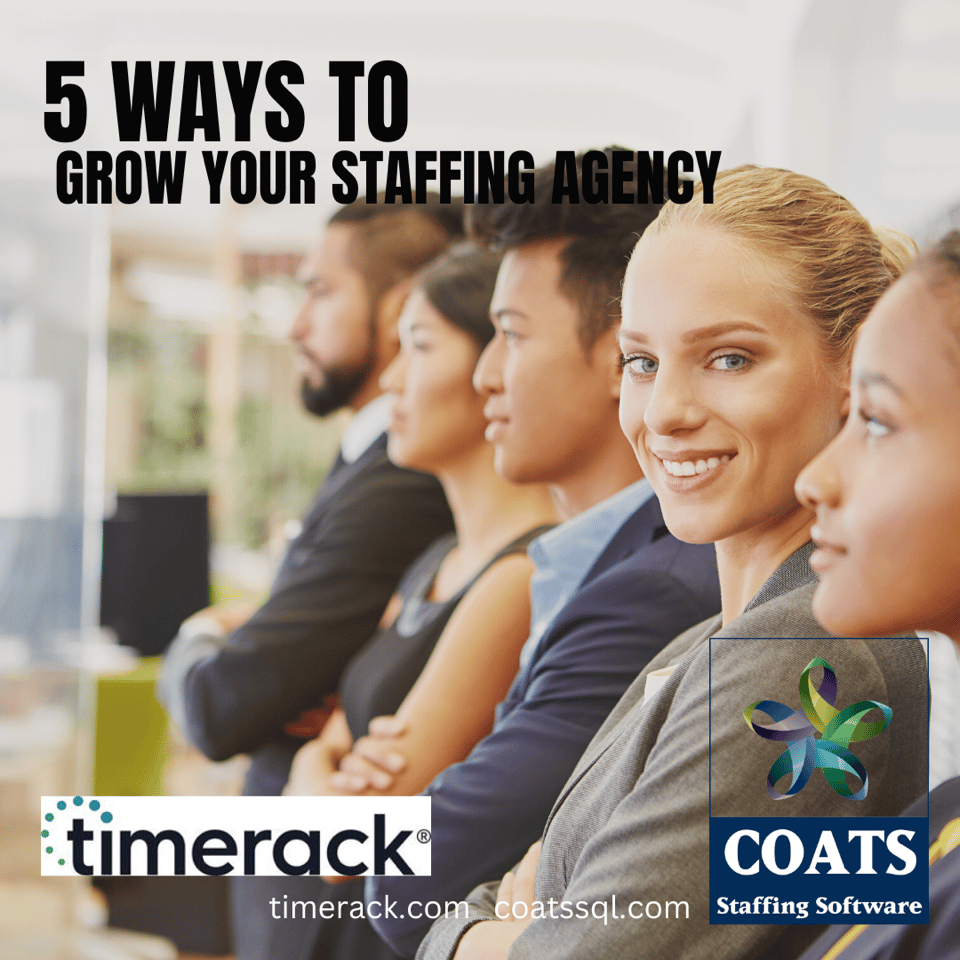Staffing and recruitment can be a tough industry, but when you’re good at what you do, you’ll find you’re seldom short of clients. The challenge for many staffing agencies is getting to that point. Scaling a business is never 
1. Embrace Work-from-Home
Since Covid-19, many businesses have had to adapt to a work-from-home (WFH) model. Many businesses that switched to a WFH model are trying to get their employees back in the office. Not every employee is thrilled about this, and some companies are experiencing mass resignations after management refused to budge on this issue.
Instead of resisting the WFH model, staffing agencies should fully embrace it where they can. Physical office space tends to be the single largest expense for most companies, after that comes office supplies and workstations. With that in mind, many companies are dramatically scaling down their headquarters, which frees up money to hire more staff that will be working off-site. This is definitely something you should consider for your own staffing agency.
2. Watch for Emerging Industries
We’re in an age now where new industries are popping up almost every night. About 15 years ago, almost no one even knew what a smartphone was, now there are multi-billion-dollar industries that specialize in providing apps, security features, and other software for these devices. Other fast-growing industries that the technology boom has brought about include fintech, healthtech, and blockchain. Green energy has also seen massive strides in recent years thanks to developments in battery technology and solar power.
While it’s not always easy figuring out which industries will reach the stars and which ones will end up in the gutter, a good staffing agency should know how to keep an eye on any emerging industry with growth potential. It’s important to know how these technologies work and what skills are required to work in these industries. In a few short years, some of them might be your main clients.
3. Leverage Social Media
For most of the working population, social media has become the primary medium they use to get their news and entertainment, talk with friends, and find new job opportunities. The most popular social media sites—including YouTube, Facebook, Instagram, TikTok, and LinkedIn—are being used by 73% to 84% of U.S. adults aged 18 to 64. If you’re only making use of one or two of these sites, then you’re missing out on the others which can net you new clients and recruitment leads.
Hire or appoint a social media manager whose job is to oversee your marketing and recruitment efforts on social media. Depending on what kind of job niches your staffing agency focuses on, it may even be worth expanding your media reach beyond the local level to a national or global level. A strong social media presence will also ensure that your staffing agency stays current on what’s happening in other industries.
4. Develop a Repeatable Sales Process
To scale and grow your agency, you need to find repeat business. Establish a routine for how you will interact with each of your clients. Gather all the necessary data on who your clients are, what their needs are, and how you can position yourself to close a deal with them. You can make this process easier by selecting particular industries to focus on, like healthcare, administration, or manufacturing.
Once you’ve secured a contract to supply staff for a client, have a system for keeping in regular touch and upselling to them. Develop systems for dealing with objections or counteroffers. A good recruiter also needs to be a good salesperson. The most successful staffing agencies tend to have a hardcore base of clients that they’ve been working with for years.
5. Outsource Your Back-office Work
On average, the cost to outsource your back-office work is lower than the cost of employing an in-house back-office team. In most cases, the bigger a business gets, the more it can save by contracting out its back-office work. If your staffing agency has scaled to the point where your teams are having to juggle multiple duties, it might be time to outsource some of that work. Some common back-office work you can outsource includes human resources, accounting, and data entry.
COATS Staffing Software and Timerack are great staffing agency-specific partners to work with to ensure your firm makes the most of technology, remote work, outsourcing, sales and marketing. The potential benefits include reduced operating costs, greater access to the best expertise, and increased efficiency.

